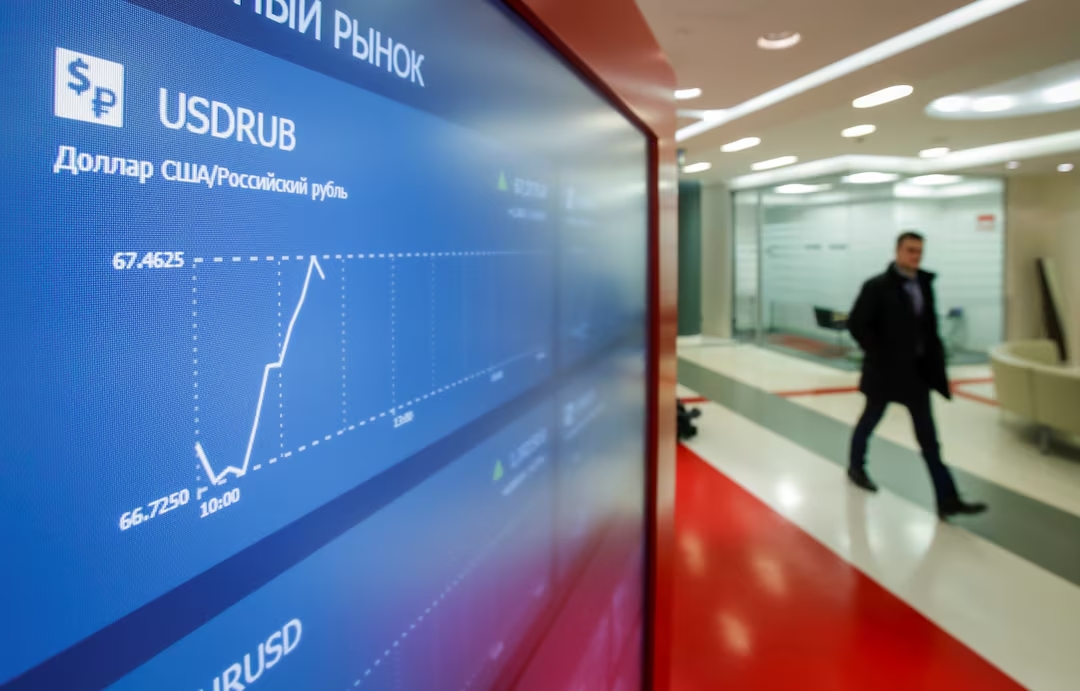In a swift response to the latest round of U.S. sanctions targeting Russia, the Moscow Exchange (MOEX.MM) announced an immediate suspension of trading in U.S. dollars and euros on June 12.

The central bank’s statement clarified that “due to the introduction of restrictive measures by the United States against the Moscow Exchange Group, exchange trading and settlements of deliverable instruments in U.S. dollars and euros are suspended.” This suspension affects banks, companies, and investors who will now need to conduct dollar and euro trades over-the-counter (OTC), lacking the liquidity, clearing, and oversight benefits provided by a central exchange, Reuters states.
Despite the disruption, the central bank assured Russian citizens that their deposits in U.S. dollars and euros remained secure.
“Companies and individuals can continue to buy and sell U.S. dollars and euros through Russian banks. All funds in U.S. dollars and euros in the accounts and deposits of citizens and companies remain safe,”
the bank emphasized. However, market sentiment indicated a shift, with some traders expressing indifference due to a growing reliance on the Chinese yuan.
With Moscow strengthening trade ties with Beijing, the yuan has become the most traded currency on MOEX, surpassing the dollar with 53.6% of all foreign currency trades in May. The volume of dollar-rouble trading on MOEX averages around 1bn roubles ($11mn) daily, while euro-rouble trades hover at 300mn roubles ($3.4mn). Yuan-rouble trading, by contrast, regularly exceeds 8bn roubles ($90mn) daily.
The U.S. Treasury's move targets the financial architecture that supports Russia’s defense industry and its acquisition of goods for the war effort. Russia’s central bank has been preparing for such sanctions over the past two years, modeling various scenarios with forex market participants and infrastructure organizations.
Russian broker T-Investments described the sanctions as “bad, but expected news.” The measures are likely to impact MOEX’s profits by reducing trading volumes. In May, MOEX’s total trading volume was 126.7 trillion roubles ($1.43 trillion), up by over a third from the previous year. In 2023, the exchange reported a net profit of 60.8bn roubles ($685mn), a 67.5% increase year-on-year.
Investment banker Yevegeny Kogan, a professor at Russia's Higher School of Economics, cautioned against panic. He highlighted the genetic tendency among Russians to buy currency in times of fear, advising against hasty decisions. "You know, it’s genetic for us - if we’re scared, we run to buy currency. And it doesn’t matter whether it’s 100, 120 or 150. You mustn't rush," he warned on Telegram.
Comments (0)